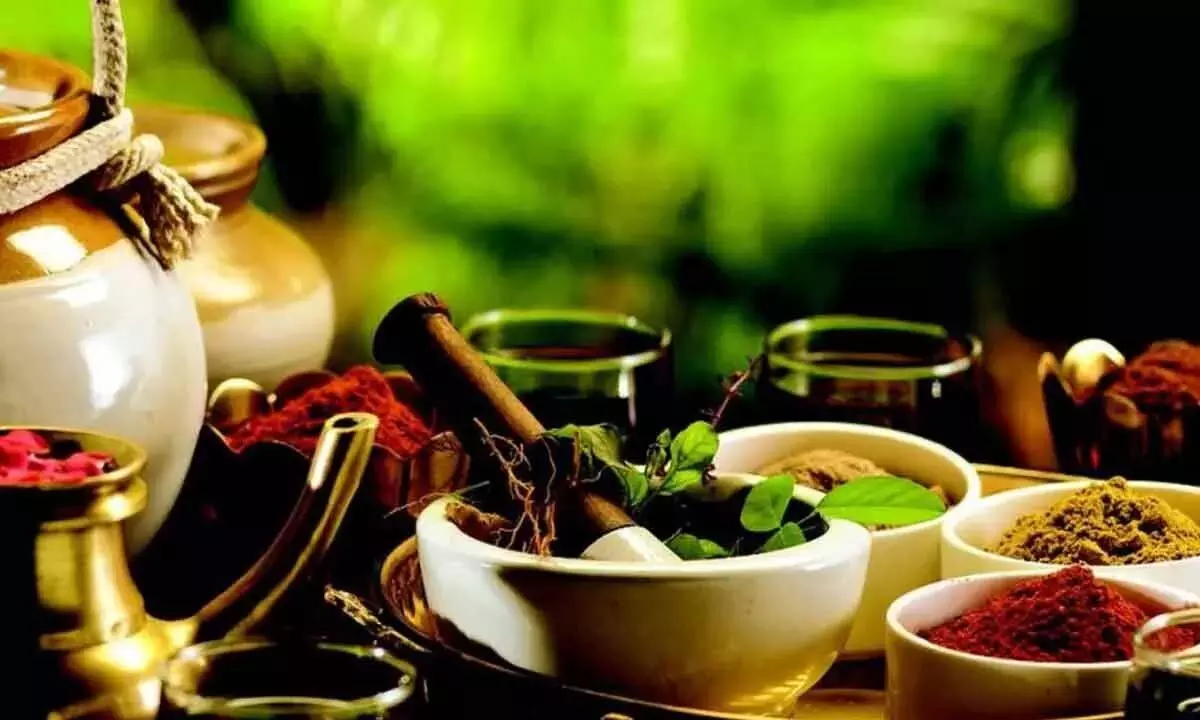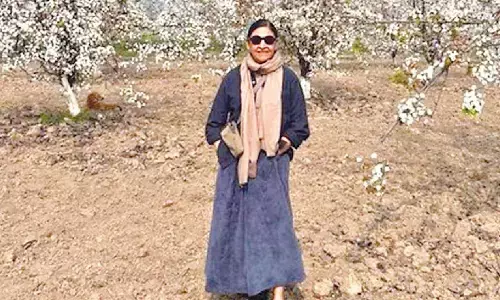Efforts on to promote evidence-based research in Ayush sector

Efforts on to promote evidence-based research in Ayush sector
Ministry of Ayush and DST ink MoU to jointly undertake R&D activities on scientific validation of Ayush concepts, procedures and product
The Union Ministry of Ayush and the Department of Science and Technology (DST) under the Union Ministry of Science and Technology will jointly undertake research and development (R&D) activities for promotion of evidence-based research and scientific intervention in Ayush sector. For this purpose, a memorandum of understanding (MoU) has been signed between the Ministry of Ayush and DST recently.
Through the MoU, Ministry of Ayush and DST have agreed to jointly undertake R&D activities on scientific validation of Ayush concepts, procedures and products, create a platform for the exchange of information and bring about the application of modern science toward understanding the Ayush-related basic concepts and principles. The MoU will identify the potential areas of research to explore cooperation, convergence, and synergy for evidence-based scientific intervention in the Ayush sector and further application of these into the public healthcare system.
The Ministry of Ayush will identify thrust areas involving Ayush-related systems that require understanding the basic concepts, procedures, development of newer tools, and so on in modern sciences. The DST, through the Science and Engineering Research Board (SERB), will coordinate the implementation of thrust areas through well-chartered plans and mutual concerted actions. Partnership with industry, R&D organizations, both public and private, and government agencies and departments would be strongly encouraged. Further, the MoU will also focus on special calls for proposals under Ayush related R&D activities solicited from the individual or group of national scientists who are actively engaged in research and technology development in academic institutions, research organizations, governments agencies, and industries.
Obviously, the partnership between the Union Ministry of Ayush and the DST on R&D is a significant step as traditional knowledge and modern science are joining hands especially in health sciences. When the scientists of modern medicine and medical practitioners of Ayush are brought together, it is sure they will come up with some solutions, which will be available at affordable prices. The government's initiative, which will definitely give a boost to the Ayush exporters, follows the emerging opportunities in Ayush products as there is a growing interest across the world in Ayush-based solutions for disease resistance and treatment for the Covid-19. The world now knows that Ayush products played a key role in providing the much-needed immunity to the people to fight against the dreaded disease of Covid-19. It is a fact that there is emerging evidence about correlation between the low Covid-19 mortality rates and large-scale adoption of Ayush prophylactic solutions by the people in India. Besides, the protection offered by the Ayush systems to the common people during the pandemic neutralised the scepticism that many people had about the efficacy of the medicines and products offered by these systems. It is a fact that the world is now looking out for alternatives to modern medicines for various reasons which have increased the demand for traditional medicines as well as their credibility worldwide. The traditional systems of medicine has a lot of scope for exports as India had exported ayush and value added extracts of medicinal herbs to over 150 countries in the 2021-22 period worth $612.83 million.
All said and done, still there is a growing suspicion in the western countries about the quality, scientific evidence and authenticity of the Indian ayush drugs which are sent abroad mostly as herbal products or food supplements. It is a fact that as an industry ayush sector, especially ayurveda, has not seen its potential growth so far when compared to its increasing global acceptance and the capability to heal ailments. To overcome the hurdles for global growth, the traditional healing industry has to prove that it is a substantiated science. For that, all stakeholders should join together for a concerted effort to promote the country's own traditional system of ayush as an evidence-based medicine to the entire world.
To avail the benefits and promote the exports, the industry needs to talk about science and evidence rather than constantly speaking about heritage and philosophy. Besides, all the ongoing research work on the basis of science and technology on ayurveda and other streams of the ayush need to be compiled to highlight the potential of traditional medicines to prove that they are of substantiated science. In spite of all efforts being taken by the Union Ministry of Ayush and the Ministry of Commerce and Industry to promote Indian traditional medicines in foreign countries, a number of steps still need to be taken beforehand to achieve this goal including educating the healthcare managers and regulators abroad on ayurveda philosophy and its applications.
(The author is a freelance journalist with varied experience in different fields)










